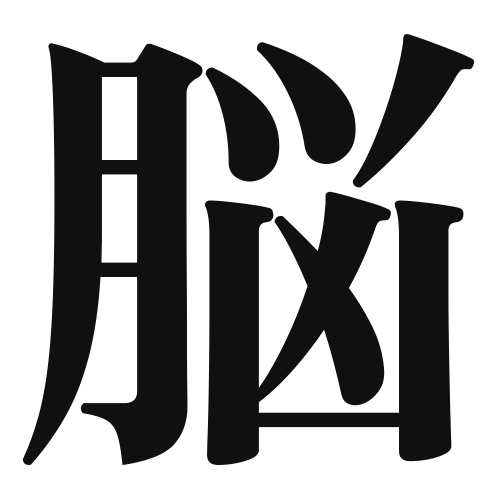1. Overview of Meaning
The kanji “脳” (nō) means “brain.” It refers to the organ responsible for thought, memory, and coordination of bodily functions. In a broader sense, it can also symbolize intelligence and mental capacity.
2. Formation and Radicals
The kanji “脳” is composed of two parts: the radical “肉” (niku), which means “meat” or “flesh,” and the phonetic component “ノ” (no). This kanji is classified as a 形声文字 (keiseimoji), which means it combines meaning and sound elements.
The radical “肉” indicates that the kanji relates to a part of the body, while the phonetic component provides the pronunciation.
3. Examples of Usage
Common words and phrases that include “脳” are:
- 脳科学 (nōkagaku) – neuroscience
- 脳卒中 (nōsotsuchū) – stroke
- 脳波 (nōha) – brain waves
Example sentence in daily conversation:
「彼は脳科学を勉強しています。」(Kare wa nōkagaku o benkyō shiteimasu.) – “He is studying neuroscience.”
4. Synonyms and Antonyms
Similar kanji with related meanings include:
- 思考 (shikō) – thought, which emphasizes the process of thinking.
- 知能 (chinō) – intelligence, which refers to the ability to learn and understand.
Antonyms include:
- 無知 (muchi) – ignorance, which means a lack of knowledge or awareness.
5. Cultural and Historical Background
The concept of the brain is significant in Japanese culture, often associated with intelligence and wisdom. In traditional Japanese medicine, the brain is viewed as the center of mental and spiritual health.
Proverbs and idiomatic expressions related to “脳” include:
- 「脳を使う」(nō o tsukau) – “to use one’s brain,” meaning to think critically or wisely.
This reflects the cultural value placed on intellect and thoughtful decision-making in Japanese society.
